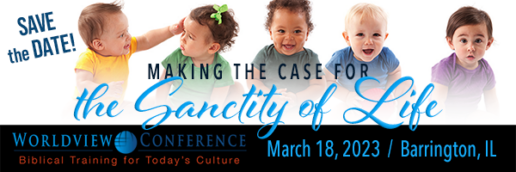Politics – A Worldview Apart
For Chicago Mayor Lori Lightfoot, “Turn out the lights, the party’s over.” That’s particularly embarrassing for her because a sitting mayor is supposed to be reelected. She failed to impress voters, yet announced that Chicago moved forward during her term. Voters disagreed. Opponents pointed out the rise in crime and a consistently divisive leadership style.
So who is next up? We find out on April 4th when the top two vote-getters face a runoff election. Paul Vallas positions himself to be somewhat conservative in his approach to government. Brandon Johnson, the more liberal.
Both are experienced in the political arena. Paul Vallas is the former Chicago Public Schools CEO. He finished with almost 34% of the vote. Johnson is a Cook County Commissioner and drew 20.32% of the vote. He found heavy support from the educational community as a Chicago Teachers Union organizer.
Mayor Lightfoot finished third out of nine candidates. She garnered a weak 16.9% of the vote total. Lori was the first black female mayor in Chicago’s history and the first openly “gay” mayor.
Vallas is a family man. Paul and his wife, Sharon, raised three sons: Gus, Mark, and Paul Jr. Two of those men have gone on to public service careers. The Vallas’s second born, Mark, died as a result of opioid abuse in 2018. Heartbreaking. His faith background is Greek Orthodox.
Brandon Johnson is also a family man. He resides on the west side of Chicago with wife Stacie and three children. He was born in Elgin. Brandon is the son of a pastor and one of ten siblings. It is said he was “raised on a foundation of hard work, faith, and service.” He ran as one of the most “progressive’ candidates on the ballot.
So both men “identify” with faith in the Christian tradition. However, that really does not tell us much. What we really need to know is how their faith shapes their worldview—which gives us a much better picture on how they will pursue political decisions that support (or do not support) healthy families.
For example, during the campaign, Paul Vallas was asked to clarify his views on abortion. To which he replied, “Fundamentally, I oppose abortion.” Then a spokeswoman for Vallas said he was referring to his Greek Orthodox faith, which opposes abortion.
When Vallas last ran for mayor in 2019, this was his posture on LGBTQ issues: “My approach has always been to embrace and support the LGBT community and let my actions speak louder than my words as I fight for rights and services for all Chicagoans.”
Here’s the other choice. On his brandonforchicago.com website, it was said “Brandon will transform Chicago into a national model for gender equity and reproductive rights, champion LGBTQ rights as human rights, and be a visible and vocal ally to creating safety and equal opportunity for the LGBTQ community.” Party line politics.
Same brandonforchicago.com website, this time on abortion. “There are three things I would like to make absolutely clear. One: abortion is health care. Two: abortion should be a constitutional right. Three: We will not accept an America – or a Chicago – that goes back in time. There is no middle ground on abortion.” He’s right on that last part!
Now the true colors are known of the moral positions of the two Chicago mayoral candidates. This defines their worldview. If you ask either candidate if they wish to govern with wisdom, no doubt they both would nod affirmatively. The writer of Proverbs makes it clear, “The fear of the LORD is the beginning of wisdom, and the knowledge of the Holy One is insight. (Proverbs 9:10, ESV)
Over the course of time in my role in talk radio, I would frequently ask political leaders or candidates this question: “What is your source of moral truth?” Several would stumble through their answer.
An important question, yes? I dare say, a critical question. Because that, in fact, identifies much about their worldview. We should not be afraid to ask our “leaders” (or candidates) about their worldview. Obviously, it will shape their public policy decisions.
What about your worldview? Does it need a tune-up? The Illinois Family Institute offers access to a number of worldview shaping events. There is one coming up on March 18th. You can find details on the IFI Events page.




